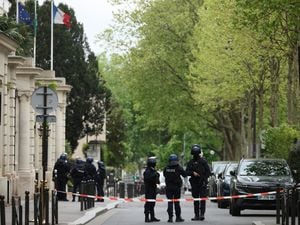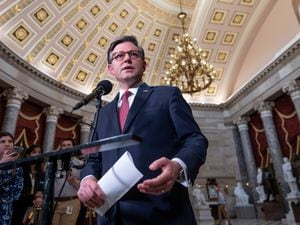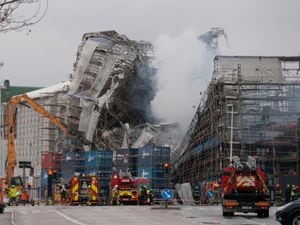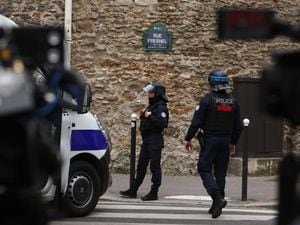Arab foreign ministers affirm Jerusalem as future Palestinian capital
Arab League member states met in Cairo amid a wave of anger at US President Donald Trump’s decision to recognise Jerusalem as Israel’s capital.

Arab foreign ministers have insisted Jerusalem must be the capital of a future Palestinian state, even as the US prepares to move its embassy there in a step that has angered the Arab world.
A ministerial meeting held in the Egyptian capital Cairo brought together foreign ministers from the Arab League member states.
It came amid a wave of anger at US President Donald Trump’s decision in December to recognise Jerusalem as Israel’s capital and move the embassy there, sparking protests in the West Bank and Gaza Strip at the time.
In their final statement, the ministers endorsed a peace plan presented by Palestinian President Mahmoud Abbas to the United Nation Security Council in February and his call for an international peace conference by mid-2018 with the key goals of full UN membership for the state of Palestine and a time frame for a two-state solution.
The plan calls for mutual recognition by the states of Israel and Palestine based on 1967 borders, and formation of “an international multilateral mechanism” to assist the two parties in resolving all final status issues and implementing them within a set time frame.
In a televised press conference, Arab League chief Ahmed Aboul-Gheit said: “The Arab league has already decided to stand against the negative consequences of the American dangerous and illegal decision of moving the US embassy from Tel Aviv to Jerusalem and recognising the occupied city as a capital of Israel.”
Mr Trump’s declaration departed from decades of US policy and upended longstanding international assurances that the fate of the city would be determined in negotiations.
Most countries around the world have not recognised Israel’s 1967 annexation of east Jerusalem. Under long-standing international consensus, the fate of the city is to be determined in negotiations.
Jerusalem’s status is at the core of the decades-long Israeli-Palestinian conflict and Mr Trump’s announcement in December was widely perceived as siding with Israel.
It also raised fears of more bloodshed as past crises over Jerusalem have triggered violence.
Israel has considered Jerusalem its capital since the state’s establishment in 1948 and sees the city as the ancient capital of the Jewish people.
The Palestinians equally lay claim to Jerusalem and want the eastern part of the city as capital of their future state.





